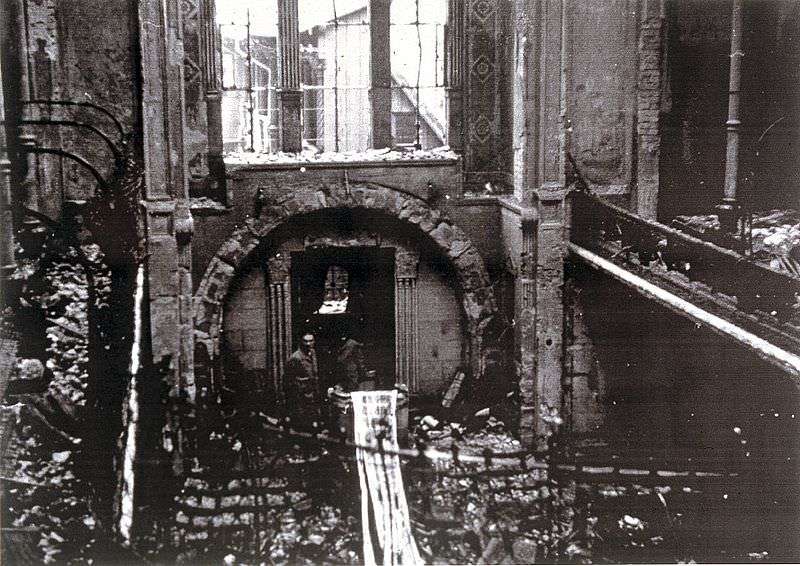Survey Shows European Jews Report Rise in Anti-Semitism On Eve of Kristallnacht Anniversary

Tomorrow will mark the 75th anniversary of the pogrom against Jews that took place across Nazi Germany as well as parts of Austria known as Kristallnacht.
Ahead of the anniversary, the European Union's Fundamental Rights Agency (FRA) has released a survey on anti-semitism, which shows that Jews in Europe feel that there has been an increase in anti-semitism in the past five years.
From the FRA Survey:
Two thirds of the survey respondents (66 %) consider antisemitism to be a problem across the eight EU Member States surveyed, while on average three quarters of the respondents (76 %) also believe that the situation has become more acute and that antisemitism has increased in the country where they live over the past five years. In the 12 months following the survey, close to half of the respondents (46 %) worry about being verbally insulted or harassed in a public place because they are Jewish, and one third (33 %) worry about being physically attacked in the country where they live because they are Jewish. Furthermore, 66 % of parents or grandparents of school-aged children worry that their children could be subjected to antisemitic verbal insults or harassment at school or en route, and 52 % worry that they would be physically attacked with an antisemitic motive while at school or en route. In the past 12 months, over half of all survey respondents (57 %) heard or saw someone claim that the Holocaust was a myth or that it has been exaggerated.
According to the survey, almost a third of Jews in the eight countries examined in the survey (where more than 90 percent of European Jews live) have considered emigrating in the last five years. The figure is especially high in Hungary, where almost half of the Jews surveyed said that they have considered leaving. Jobbik, Hungary's anti-semitic and anti-Roma party, is the third most popular party in the country.
While much of Europe's anti-semitism continues to be based in sort of nationalism and prejudices seen before the beginning of the Second World War, The New York Times' reporting on the survey points out that some of Europe's more recent anti-semitism is rooted in the political left and the comparatively recent Muslim communities in Europe:
In other countries, however, hostility to Jews is now rooted more on the left and in Muslim immigrant communities, the survey's findings indicate. More than three-quarters of respondents in France and Belgium, both of which have large populations of Muslim immigrants, identified anti-Semitism as a problem. Eighty percent of respondents in these same two countries described immigration as a problem, too, suggesting tense relations between Jewish communities and recently arrived immigrants.
About 90 percent of respondents in Belgium and France reported that the Arab-Israeli conflict had had a "notable impact" on the safety of Jews. Only 40 percent reported the same in Hungary, which has few Muslim immigrants, while a majority of respondents in most other countries surveyed said tensions in the Middle East had affected their feelings of safety either a "great deal" or a "fair amount."
Read the full report below:


Show Comments (71)